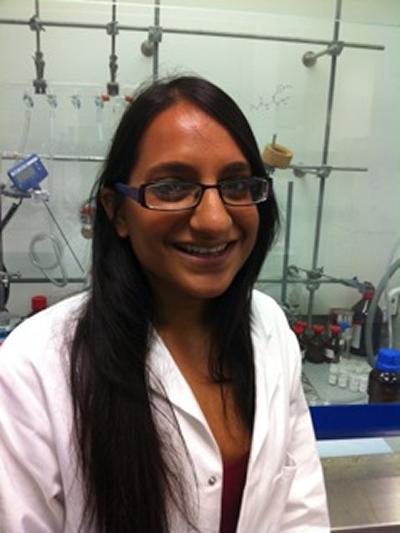Ishna Mistry PhD Chemical Biology
Postgraduate student

Hi, I'm Ishna Mistry and I studied PhD Chemical Biology within Chemistry at the University of Southampton.
The department has excellent facilities in my research area, and the added bonus of options to collaborate with other departments, opening up an even wider range of world class facilities to use.
After completing my undergraduate degree in Natural Sciences I was keen to continue my education at the interface between chemistry and biology. I'd had a taste of research in my undergraduate projects and decided to develop and extend my knowledge and skills with a PhD. I was lucky enough to be offered a postgraduate studentship in an area that greatly interested me; cancer therapeutics.
My research aims to better understand the response of cancer cells in low oxygen conditions, which often occur in tumour tissue. My multi-disciplinary PhD allows me to use a range of skills from both chemistry and biology to understand disease mechanisms and enable to development of cancer therapeutics.
The department has excellent facilities in my research area, and the added bonus of options to collaborate with other departments, opening up an even wider range of world class facilities to use. I've taken a number of taught courses (some postgraduate level and some undergraduate level) in subjects that relate to my research as well some I was just interested in.
As well as my research, I've had the opportunity to demonstrate to undergraduate students in lab sessions and workshops, which I have found very enjoyable, giving me teaching experience. In addition, I've continued to participate in a number of outreach activities, communicating science to school children and the general public. My experiences have enthused me continue my career in chemistry, and I hope to move into an industry role in drug discovery after my doctorate.
A PhD is very different to undergraduate study, guidance and advice are available but ultimately you are responsible for your own project. This can be challenging, it requires hard work and good time management, but it is also very rewarding that your research is contributing to advancing science in your field.